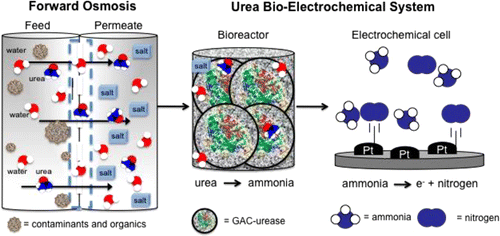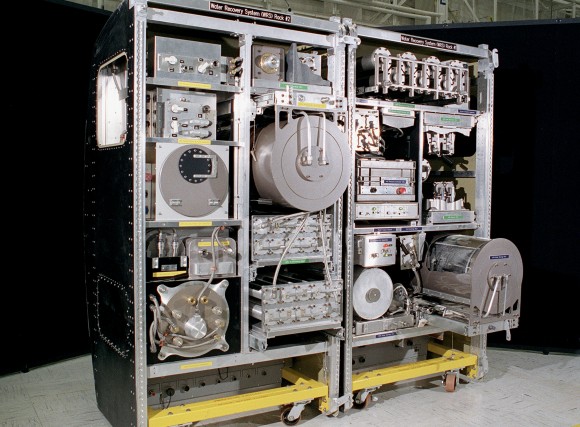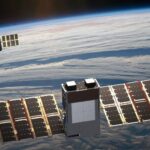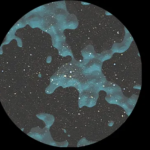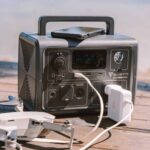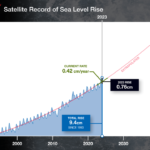April 17, 2014 – Yesterday my blog posting focused on NASA’s efforts to involve the public in designing better oxygen recovery systems. So today I thought we should look at the question of recycling other things that come out of humans. We’re talking about pee.
In Mercury, Gemini and Apollo, astronaut urine was collected and vented into space. But on the International Space Station (ISS) that is no longer the case. Urine, sweat and greywater today are collected and recycled by a Water Recovery System that captures 93% of the liquid consumed and emanated by humans on board the ISS. The system is a distiller that spins to produce artificial gravity. That presence of gravity allows the contaminants in the water to be separated when the water boils. That would not be the case without the spin. The picture below shows the Water Recovery System that currently is on the ISS.
But there is more to water recovery systems that process urine than just getting back the water from yesterday’s coffee. NASA estimates that any future Deep Space missions will have to deal with urine on a significant scale. They estimate our pee will contribute greater than 50% of the total waste on board a spacecraft. Recovering the water for reuse is step one. Step two involves recovering the urea to process into a fuel for generating electricity. That’s where a new research article appearing in the ACS Sustainable Chemistry & Engineering journal may provide a solution.
The authors describe what they call a Urea Bioreactor Electrochemical System (UBE), seen below, that uses forward osmosis to filter the urea from the water. The bioreactor converts urea to ammonia which can then be used in an electrochemical cell to generate electricity. The research indicates that the UBE removes greater than 80% of organic carbons and converts 86% of the urea to ammonia.
So not only will future spacefarers drink their pee but they’ll also power their equipment with it.

